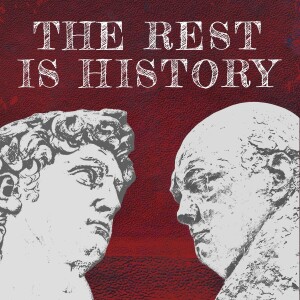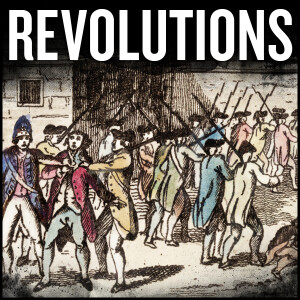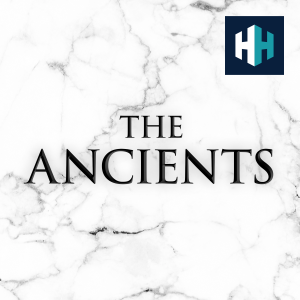

The WallBuilders Show
https://feeds.buzzsprout.com/2077254.rssEpisode List

Dual Citizenship in America: A Constitutional Perspective
Today's episode dives deep into constitutional questions that reveal the complex interplay between America's founding principles and current debates about citizenship, federal funding, and religious foundations.When a listener asks about dual citizenship, we uncover a fascinating historical shift. While America traditionally emphasized singular national loyalty, the Supreme Court's 1967 ruling dramatically changed citizenship policies. This transformation reflects broader cultural changes in how we view commitment—a shift from steadfast loyalty to seeking multiple options and escape hatches. The discussion raises profound questions about what happens when citizens maintain divided allegiances during challenging times.The conversation takes an illuminating turn when examining claims about Planned Parenthood funding in recent legislation. What begins as a simple fact-check reveals the surprising power of unelected officials in the legislative process. The Senate parliamentarian's decision to reduce defunding from ten years to one demonstrates how procedural mechanisms can fundamentally alter major policy decisions with little public awareness.Perhaps most compelling is our examination of the founding fathers' religious beliefs. When confronted with claims that figures like Jefferson, Franklin, and Madison were deists who rejected Christian principles, we present documented evidence that paints a dramatically different picture. Drawing from Professor Donald Lutz's comprehensive research analyzing 15,000 founding-era writings, we demonstrate that the Bible was the single most cited source (34%) in the founders' documents—far outpacing Montesquieu, Blackstone, and Locke.The narrative of America being founded on anything other than predominantly Judeo-Christian principles simply doesn't withstand historical scrutiny. Benjamin Franklin's famous call for prayer during the Constitutional Convention hardly aligns with portraying him as a deist who believed in an uninvolved creator.For those wanting to explore these topics further, visit wallbuilders.com for primary source documents and deeper insights into America's true constitutional foundations. These questions remind us that understanding our nation's principles requires moving beyond simplified narratives to embrace the rich complexity of our shared heritage.Support the show

The Truth Behind Political Parties and Civil Rights
The tangled relationship between race and politics in America contains shocking truths that have been systematically erased from our collective memory. When Texas Democrats recently fled the state to break quorum on redistricting legislation, they unknowingly echoed tactics used by their political ancestors in the 1870s—though the historical context reveals a dramatically different motivation.Did you know the Republican Party of Texas was founded on July 4, 1867, by 150 Black Americans and only 20 white Americans? Or that census records from the 1870s documented just one Black Democrat in the entire state of Mississippi? These aren't fringe theories or alternative facts—they're documented historical truths that challenge everything most Americans believe about race and political affiliation.The electoral record speaks volumes: the first 42 Black elected officials in Texas history were all Republicans. This pattern repeats across the South—the first 99 in Alabama, 127 in Louisiana, 41 in Georgia, and 112 in Mississippi were Republicans without exception. Even more surprising, the Ku Klux Klan's founding documents explicitly stated they were created to "regain power from Republicans," not primarily to target Black Americans. Between 1882-1964, approximately 4,700 Americans were lynched—about 3,500 Black and 1,300 white—revealing the KKK's violence was politically motivated, targeting Republicans of both races.The gradual transition of Black voters from Republican to Democratic support throughout the 20th century is a complex story often mischaracterized as a sudden "party switch." In reality, most Black Americans still supported Republican Eisenhower in the 1950s, with major shifts occurring gradually through FDR's Depression-era programs and later civil rights legislation.We also spotlight forgotten heroes like Matthew Gaines, a Black Republican state senator who created one of America's first faith-based healing programs after the Civil War. These stories remind us that understanding American history requires examining the biographical accounts systematically excluded from modern narratives.Want to discover more hidden history? Visit wallbuilders.com and search "Black History" for resources that will transform your understanding of America's complex past. Share this episode with someone who believes they know American history—they're in for an eye-opening experience.Support the show

Faith Foundations: Ken Ham on Biblical Origins and Modern Culture
Stepping into the Ark Encounter feels like walking straight into biblical history. This architectural marvel—the largest freestanding timber frame structure in the world—stretches one-and-a-half football fields in length, stands 10 stories high, and brings Noah's epic journey to life through state-of-the-art exhibits that rival anything you'd find at Disney or Universal Studios.Ken Ham, founder of Answers in Genesis, reveals some astonishing facts about this attraction and its sister site, the Creation Museum. Together, these destinations have welcomed nearly 15 million visitors since opening, with the Ark alone drawing approximately one million people annually. But what's truly remarkable isn't just the attendance numbers—it's who's coming through the doors. About 30% of visitors aren't Christians, representing diverse faiths including Sikhs, Buddhists, Muslims, Jews, and various denominations. As Ham notes, "It's a mix you would never see in church."The impact extends far beyond tourism. Research consistently shows that roughly 7% of Ark visitors—approximately 70,000 people annually—become Christians as a direct result of their experience. Combined with similar figures from the Creation Museum, these attractions are leading nearly 100,000 people to faith each year. But why? Because they directly address the foundational questions that often prevent belief: Can we trust the Bible's historical claims? Could Noah really fit all those animals on the Ark? What about evolution and fossils?For believers, these attractions serve an equally vital purpose. Many Christians feel intimidated when challenged about their faith because they lack answers to difficult questions. The exhibits provide clear, compelling responses to these challenges, equipping visitors to defend biblical truth with newfound confidence. "I've learned more here than in my whole life in church or even at Bible college," visitors frequently comment.Ready to experience it yourself? Ham recommends allowing at least three days to fully explore both attractions. While summer draws the largest crowds (5,000-11,000 daily at the Ark alone), special programs run year-round, including Christmas celebrations and the 40 Days of Christian Music Festival. Visit arkencounter.com to plan your journey into biblical history and discover why these destinations are changing lives around the world.Support the show

Patriot Academy: Training Tomorrow's Constitutional Champions
What happens when 150 young patriotic Americans gather to learn the legislative process through a biblical worldview? At Patriot Academy, the answer comes alive as students from across the nation engage in committee work, floor debates, and deep discussions about America's founding principles.Rick Green and Tim Barton welcome listeners to this special broadcast from Patriot Academy campus, where tomorrow's leaders are developing the skills needed to make a difference in their communities. The atmosphere crackles with curiosity as students step forward with thoughtful questions spanning from constitutional relevance to effective dialogue with non-believers.When asked about the Constitution's modern relevance, Tim addresses a concerning trend even among conservative youth who question whether this foundational document is outdated. "Even a benevolent dictator is still not good," Tim explains, emphasizing how the Constitution's checks and balances protect liberty rather than hinder progress. This perspective offers a crucial counterpoint to those suggesting we should abandon constitutional constraints.The discussion takes a profound turn when exploring how believers can engage respectfully with those who don't share their faith. Tim shares his approach: "Our goal is not to win the conversation, it's to win the person." By starting with the question "How do you determine right and wrong?" he creates a pathway to meaningful dialogue that respects the individual while introducing objective moral standards.Perhaps the most illuminating segment examines how American education has dramatically shifted from its historical foundations. Early education built upon a sequence: religion, then morality, then knowledge. The 1647 "Old Deluder Satan Law" established schools primarily so children could read the Bible. This historical perspective challenges modern approaches that often separate moral foundations from knowledge acquisition.Whether you're a parent concerned about education, a person of faith seeking better dialogue skills, or a patriot interested in constitutional principles, this episode offers wisdom for navigating today's complex cultural landscape. Listen now to be encouraged and equipped for principled leadership in your own sphere of influence.Support the show

Faith, Culture, and Fresh Hope
Today, we cover several uplifting developments across multiple fronts in the ongoing cultural battle for traditional values, religious freedom, and the sanctity of life.The struggle to restore common sense to university campuses has yielded a stunning breakthrough with Columbia University agreeing to pay $200 million to the federal government following anti-Semitic incidents. After the Trump administration boldly withheld billions in federal funding from Ivy League institutions promoting radical ideologies, Columbia established new behavioral guidelines and even rescinded degrees from protestors who disrupted campus life with anti-Israel demonstrations. For those who assumed these elite institutions were untouchable, this reversal proves that principled pressure can succeed where political timidity has failed.Perhaps most remarkable was the extraordinary medical achievement highlighting the false choice between a mother's life and her unborn child. When doctors discovered Lucy Isaac had ovarian cancer at 12 weeks pregnant, they performed a groundbreaking procedure—temporarily removing her womb while treating her cancer. Throughout a five-hour surgery, medical team members literally held her womb containing baby Rafferty, monitoring his heart rate and temperature with warm saline packs. This medical miracle allowed Lucy to continue her pregnancy and give birth to a healthy child, powerfully demonstrating that skilled physicians need not sacrifice one life to save another.The legal landscape also shows promising shifts toward protecting religious freedom. A New York wedding photographer won her right to decline photographing same-sex weddings based on religious convictions, while the traditionally liberal Ninth Circuit Court ruled that Oregon cannot prevent a Christian mother from adopting children simply because she refuses to use inaccurate pronouns or take children to pride parades. Even in Great Britain, laws restricting public evangelism as "antisocial behavior" have been struck down, potentially signaling a renaissance of religious liberty in America's oldest ally.What these victories share is their reliance on persistence, principle, and courage. After years—sometimes decades—of struggle, these breakthroughs remind us that standing firm ultimately yields results. Subscribe to hear more stories that mainstream media overlooks and learn how you can participate in restoring America's founding values.Support the show
Create Your Podcast In Minutes
- Full-featured podcast site
- Unlimited storage and bandwidth
- Comprehensive podcast stats
- Distribute to Apple Podcasts, Spotify, and more
- Make money with your podcast











